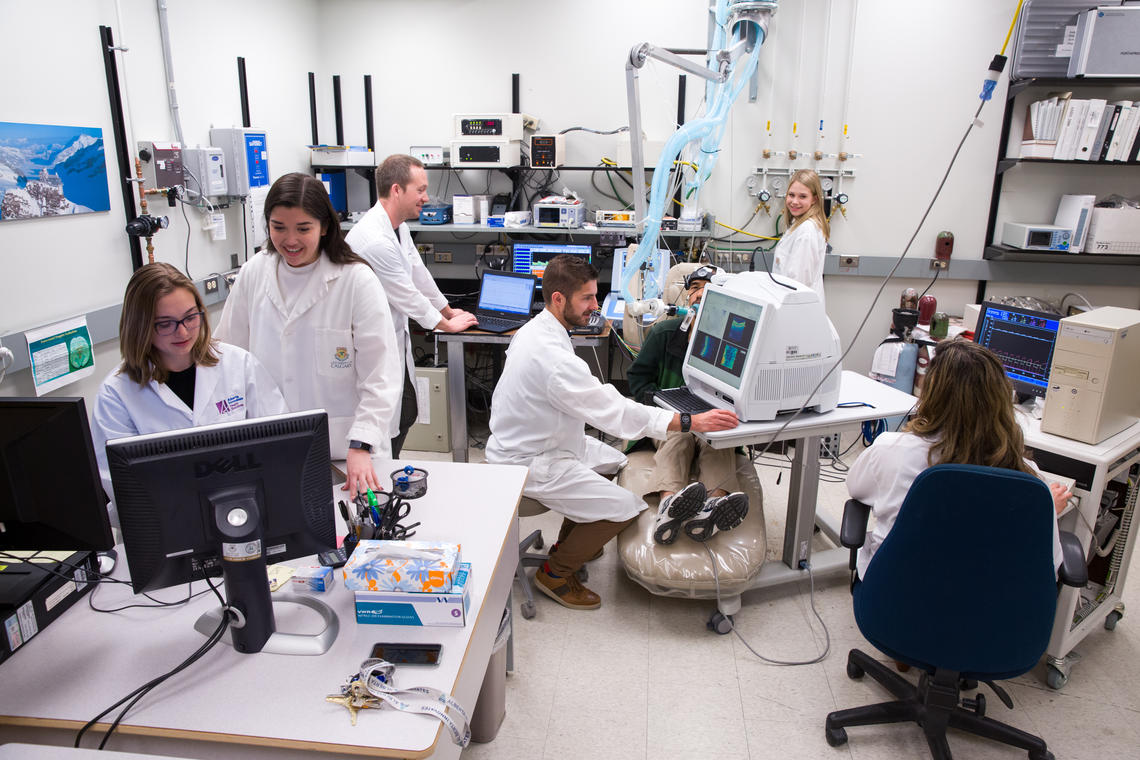
What is BRAIN CREATE?
Update – September 2024: While the BRAIN CREATE Program will continue through August 31, 2027, we are no longer accepting new students or scholars into the program. Please contact braincreate@ucalgary.ca for more information.

Canadian industries are undergoing a technological revolution. Canada’s traditional industries (mining and exploration, transportation, defense, finance, healthcare) are increasingly turning to innovation to maximize human efficiency and safety. Many of these industries work at geographic, environmental and biological extremes that pose unique challenges to human physical and mental performance and where new technological solutions are sought. At the same time, Canada must position itself for the flexible, nimble and ever-changing industries of the future that capitalize on rapidly advancing technology and can offer new healthcare and safety solutions to Canada’s most remote populations. New brain-related neurotechnologies represent an exciting area of dramatic economic growth where these needs intercept. In 2012, neurotechnologies constituted a $145 billion market with a growth rate of 9% per year; assuming this growth continues, by the time the next CREATE trainees retire, neurotechnologies will be a $2 trillion industry [Geelen, 2012].
Neurotechnologies are centered on high tech solutions to measure and manipulate critical brain and brain-regulated physiological functions. This industrial sector is increasingly shaping the future of Canadians, promising new brain prosthetics and interfaces, augmented performance and education, advances in computing, better health monitoring and control, and improved workplace efficiency and safety in extreme/remote environments. Training in this area is currently underrepresented in Canada (Council of Canadian Academics, 2018; Ontario Ministry of Labour, 2015). Therefore, we propose an innovative interdisciplinary training program, BRAIN CREATE, to provide HQP to accelerate Canada’s pursuit of this sector. Building upon a >$100 million investment in neurotechnologies at the UofC, and with cash+in-kind budget >$6.2M including >$4.7M dedicated to trainee salaries, BRAIN CREATE will provide advanced training in key brain technologies and professional skills, including innovation and commercialization (Fig. 1), thus allowing graduates to establish careers and companies more quickly [McKean, 2018].


Our goal is to position BRAIN CREATE trainees to play critical roles in revamping and modernizing traditional industries with brain-centric innovations, while galvanizing activities in newer sectors developing, commercializing and using advanced pharmaceuticals, artificial intelligence, smart monitoring, implantable medical and imaging devices, biometrics, emerging human space exploration technologies and new approaches to remote diagnostics. The BRAIN CREATE Training Program will focus on how the brain functions when pushed to the limits by geographic, environmental and biological extremes as the seed for its initial growth. These student engaging and fertile test beds for novel devices and ideas will be used to equip a new breed of HQP with expertise in innovation, commercialization and advanced brain technologies.
Unlike traditional industries which can be served with regimented graduate programs, the very nature
of neurotechnologies – which evolve rapidly, exploit discoveries across a spectrum of disciplines, and
consist of many discrete niches – require trainees educated in different neuroscience disciplines,
advanced technologies and commercialization, with diverse backgrounds and interests. Recognizing that
diversity will be an important characteristic of the future workforce and knowing that personalized
learning is key to trainee engagement, knowledge acquisition and invention, BRAIN CREATE breaks
the mould of traditional graduate programs by fully embracing and actualizing the concept of an
individualized trainee program. Thus, we have designed BRAIN CREATE from the bottom up to optimize the individual experience; we envisage each trainee will have a unique journey through the Program, with an emphasis on building individual experiences that reflect their diverse backgrounds, interests and goals in the neurotechnologies ecosystem.

Moreover, BRAIN CREATE will be unique in the neurosciences by prioritizing recruitment of indigenous people and post-maternity trainees, and opening academia to non-academic partners as both teachers (partner employees will teach our students about their sectors) and learners (we will teach our partners about the latest advances in neuroscience and technology). This will provide our students opportunities to learn how to teach, cement our relationships with our partners and provide additional opportunities for collaboration and training, ensuring the Program’s sustainability while enhancing Canadian industry and the well-being of remote communities.

